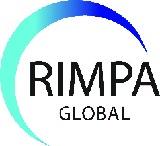This blog was written by Linda Shave for the Records and Information Management Practitioners Alliance (RIMPA)
Australia like many countries around the world is struggling with the rise of a data rich metaverse world, the rise of Quantum information processing and navigating the pitfalls of disinformation, misinformation and malinformation. Traditional approaches for identifying digital archives for digital preservation are not necessarily agile in today’s world. Traditional approaches are not designed for ploughing through the metaverse nor in identifying what is the truth or not the truth. Our future depends on a universal concerted effort to find a way forward in collecting, archiving and preserving digital assets now and into the future or we could risk entering a digital dark age.
Enter the metaverse world of the future
A metaverse world is a collective virtual shared space, created by the convergence between the physical and the digital world. A world of persistent shared 3D virtual spaces linked into a perceived virtual universe. The metaverse will become a collection of shared online worlds in which physical, augmented, and virtual spaces converge and utilises multiple technologies such the internet, wirelessly connected sensors, smart objects and GPS locators all of which will be collecting gargantuan amounts of real time digital data. The question for discussion is around how will we identify what information does the business need to keep? What will be needed for preservation and archiving? How do we filter through the metaverse data world for relevance for future generations?
Further information on Welcome to the Metaverse world can be found on the Deloitte website.
Enter the Quantum world of the future
Quantum information processing is the study of how information is gathered, transformed, and transmitted at the quantum level. Quantum computers, quantum communication channels, and quantum sensors are devices that can attain the ultimate limits of information processing. Quantum computers on the other hand can be in two states at the same time, so a quantum bit (Qubit) can have three possible values a 0, 1 or 01. A 01 state is where a qubit holds both a 0 and 1 value at the same time. We will see the rise in the use of Quantum information processing in many areas such as transport and infrastructure, health and pharmaceuticals, manufacturing, government, financial and insurance. Quantum technology will impact on almost every area of life just as the classical information technology did. As quantum technologies rapidly developed and deployed, industries will potentially be able to solve complex problems not easily achieved by classical computers today.
This raises the question around preservation and archiving of quantum data. What will we need to do?
For more information go to the Deloitte website article ‘Sensing the future of quantum’
Enter the Disinformation, Misinformation and Malinformation world of the future
The rise of Disinformation, Misinformation and Malinformation (also sometimes referred to as the deepfake universe) and the impact in our world is clear. How do we identify what is real information and what is false information? Especially when it comes to archiving and preserving information for future generations. Below is a brief description of Disinformation, Misinformation and Malinformation:
What is Disinformation?
Disinformation is false or inaccurate information that is deliberately created and spread to harm a person, social group, organisation or country.
What is Misinformation?
Misinformation is false or inaccurate information that is not created with the intention of causing harm.
What is Malinformation?
Malinformation is accurate information inappropriately spread with the intent to cause harm, particularly to the operation of democratic processes. Malinformation is largely a feature of coordinated disinformation campaigns.
This raises the following questions:
-
How do we identify fake from real information, especially when it comes to archiving and preserving information for future generations?
-
What will we need to do to find, preserve and archive information that is trustworthy, ethical, non-bias, honest and righteous for the future generations.
The following analysis from Deloitte on ‘Combating weaponized misinformation - Future of risk in the digital era’ is one of nine trends outlined in Deloitte's Future of risk in the digital era report.
